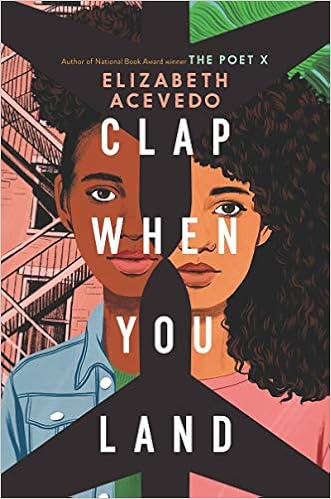
The Best We Could Do is an adult graphic memoir relating the story of the author's family during the occupation of Indochina and their eventual escape as 'boat people' after the fall of Saigon, eventually ending in America. I've read reviews that compare it to Persepolis, but I found the story's structure and tone to be similar to Maus as well, particularly with the fraught relationship with the author's father. The illustrations, which are drawn by Bui (who appears as the small child in stripes on the front cover) are all in shades of black, white, and red similar to those on the cover; it's interesting how these same colors flow from conveying warmth at some times to danger at others. Although this is largely the story of her parents' lives from childhood to the family's harrowing escape from Vietnam and immigration to the US, it is also about the larger impacts of family history on relationships through generations, and weaves in flashes forward throughout the narrative to make connections. As someone who has almost no understanding of Vietnamese history, I both enjoyed the memoir and appreciated the history lesson inherent in its telling; the graphic historical chart at the beginning is very helpful in keeping track of the key leaders and events, and I referred back to it continually not because the text was confusing but because focusing on the historical context really brought a deeper level of meaning to the book. I also did a little research on a few of the events that the chart mentioned before I started reading, and I was glad I did. The narrative opens with Bui having her own child, and right away it's obvious that there is so much under the surface; her mother struggles to be present in the delivery room although she had had six children of her own, and although her parents are divorced, they all still live very interconnected lives. Bui uses conversations with her parents to propel readers back and forth through time, hitting on a point of contention in family relationships in the present day before sliding back into the tale of how the conflicts and pain rooted decades earlier. One particularly painful admission from her mother - who Bui notes will confide more in Bui's husband than in her - has been seeping through my brain like a mist since I finished the book about a week ago, as I wonder how many women have felt the exact same way, only to find themselves somehow entangled in an entirely different life. It was these moments that gave the book such realism, as not simply a memoir where everything has ended up tied up in a bow; I suspect that would have been an easier book to write. Instead, she lays bare the bumpy, scratchy truth that allows readers to gain purchase, making it a work that can stick.













